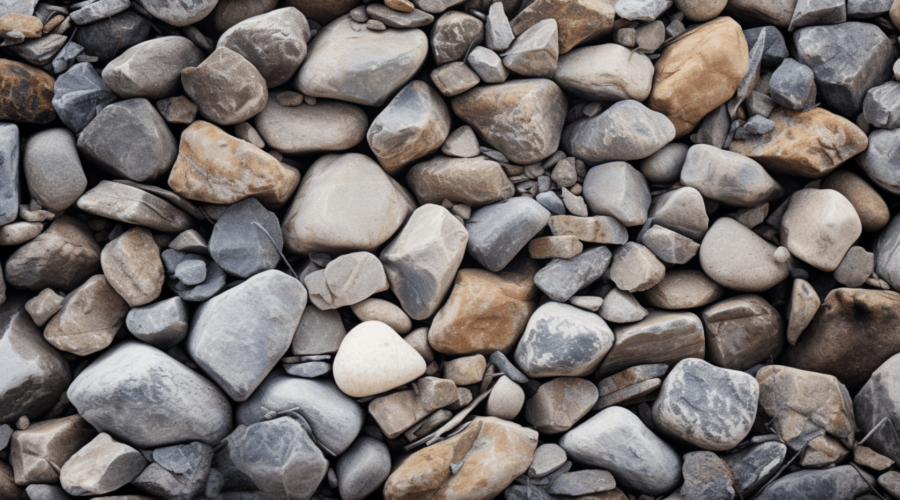In the world of construction, the choice of materials plays a pivotal role in determining the strength, durability, and overall quality of a structure. Rocks are one of the fundamental building blocks used in construction, serving as the foundation for various architectural and engineering projects. Rock crushers, specialized machinery designed to break down large rocks into smaller, manageable sizes, are crucial in preparing raw materials for construction. This article will delve into the various types of rock used in construction, focusing on their applications, characteristics, and importance in different aspects of the construction industry. From road construction to building foundations, rocks are indispensable, and understanding their diverse properties is crucial for anyone involved in the field.
Understanding the Significance of Rocks in Construction
Before we dive into the specific types of rock used in construction, it’s essential to grasp why rocks are so integral to the industry. Rocks are natural, abundant resources with several key properties, making them indispensable in construction. These properties include:
- Strength and Durability: Rocks are known for their incredible strength and durability, making them suitable for load-bearing structures and foundations.
- Availability: Rocks can be found in abundance in various geological formations around the world, ensuring a readily available source of building materials.
- Variety: The wide variety of rocks allows for customization and adaptation to specific construction needs, whether for road construction, building foundations, or decorative purposes.
- Resistance to Environmental Factors: Many rocks are resistant to weathering, erosion, and other environmental factors, ensuring the longevity of constructed structures.
With these advantages in mind, let’s explore the different types of rock used in construction and their applications.
Types of Rock Used in Construction
1. Granite
So, what types of rock are used in construction? Granite is a widely used rock in this industry, prized for its exceptional durability and aesthetic appeal. It is an igneous rock formed from the slow crystallization of magma deep within the Earth’s crust. Its hardness and resistance to abrasion make it an ideal choice for a variety of applications, including:
- Building Facades: Granite is often used for cladding building exteriors, providing an elegant and timeless appearance.
- Countertops and Flooring: Granite is a popular choice for kitchen countertops and flooring due to its durability.
- Monuments and Memorials: Many famous monuments and memorials are crafted from granite, showcasing its enduring beauty.
2. Limestone
Limestone is a sedimentary rock composed primarily of calcium carbonate. It is a versatile material used in construction for its durability and ease of shaping. Some common uses of limestone include:
- Building Blocks: Limestone blocks are used to construct walls and foundations.
- Road Construction: Crushed limestone is often used as a base material in road construction.
- Cement Production: Limestone is a key ingredient in cement manufacturing.
3. Sandstone
Sandstone is another sedimentary rock characterized by its granular texture. It is available in various colors and is used in construction for its unique appearance and workability. Key applications of sandstone include:
- Building Facades: Sandstone is a popular choice for decorative elements on buildings.
- Paving: Sandstone is used for walkways, patios, and other outdoor paving projects.
- Sculptures and Artwork: Due to its ease of carving, artists use sandstone to create sculptures and artwork.
4. Basalt
Basalt is an igneous rock that forms from the rapid cooling of lava. It is known for its high tensile strength, making it suitable for construction projects requiring reinforcement. Basalt finds its use in:
- Reinforced Concrete: Basalt fiber is sometimes added to concrete to increase its strength and durability.
- Road Construction: Basalt is used as an aggregate in asphalt and concrete for road construction.
- Erosion Control: Basalt rocks can be used in erosion control structures due to their durability.
5. Slate
Slate is a fine-grained metamorphic rock that splits into thin, flat sheets, making it an excellent choice for roofing and flooring. Its applications include:
- Roofing: Slate roofing tiles are known for their longevity and resistance to weathering.
- Flooring: Slate flooring is durable and visually appealing, making it suitable for indoor and outdoor use.
- Decorative Features: Slate is used for creating decorative features such as fireplace surrounds and countertops.
6. Quartzite
Quartzite is a metamorphic rock composed primarily of quartz grains. It is renowned for its hardness and resistance to abrasion, making it suitable for various construction purposes:
- Cladding: Quartzite can be used to clad the exteriors of buildings, enhancing their visual appeal.
- Countertops: Due to its durability, quartzite is a popular choice for kitchen countertops.
- Paving: It is used for pathways, driveways, and outdoor paving projects.
Types of Rock Used in Road Construction
Road construction is a critical aspect of infrastructure development, and the choice of rock materials is paramount to ensure the longevity and safety of roadways. Different types of rock are used in road construction to serve specific purposes. Here are some key types:
1. Crushed Stone
Crushed stone is a versatile material used in road construction. It is made by crushing large rocks into smaller, uniformly sized pieces. Crushed stone is used for:
- Base and Subbase Layers: It forms the foundation for roads, providing stability and drainage.
- Surface Dressing: Crushed stone can be used as a surface material to enhance traction and durability.
2. Gravel
Gravel consists of small, rounded stones, and it is commonly used in road construction due to its excellent drainage properties. Gravel is used for:
- Rural Roads: Gravel roads are cost-effective solutions for less-traveled routes.
- Shoulder Material: Gravel is used on road shoulders to prevent erosion and provide support.
3. Crushed Limestone
As mentioned earlier, crushed limestone is popular for road construction due to its durability and affordability. It is a reliable base material for roads and is often used with asphalt or concrete.
4. Basalt Aggregate
Basalt aggregate, derived from crushed basalt rock, is used in the construction of high-quality road surfaces. Its excellent durability and resistance to wear and tear make it suitable for heavily trafficked roads.
The Role of Rock Crushers in Construction
Rock crushers are essential equipment in the construction industry, facilitating the process of breaking down large rocks into smaller, manageable sizes. These machines are pivotal in preparing raw materials for various construction applications. Let’s explore the significance of rock crushers in construction:
Crushing Raw Materials
One of the primary functions of rock crushers in construction is to crush raw materials such as large rocks, boulders, and quarried stones into smaller, more manageable sizes. This process is crucial for obtaining the necessary materials for various construction projects, from road construction to building foundations.
Producing Aggregates
Rock crushers are integral to the production of aggregates, which are essential components in construction materials. Aggregates are used in concrete and asphalt mixes, providing structural stability and enhancing the performance of construction materials.
Customizing Material Sizes
Different construction projects require materials of varying sizes and specifications. Rock crushers enable contractors and builders to customize the size of the crushed materials, ensuring they meet the precise requirements of their projects.
Efficient Material Processing
Rock crushers are designed to process large volumes of raw materials efficiently, reducing the time and effort required to prepare materials for construction. This efficiency translates into cost savings and improved project timelines.
Conclusion
Rocks are the building blocks of the construction industry, and their diverse properties and applications make them indispensable in various construction projects. Whether it’s the durability of granite, the versatility of limestone, or the strength of basalt, each type of rock serves a unique purpose in construction. In road construction, the choice of rock materials like crushed stone, gravel, and basalt aggregate plays a critical role in ensuring the quality and longevity of roadways.
Additionally, using rock crushers significantly contributes to the efficiency and success of construction projects by breaking down raw materials and producing the necessary aggregates. As the construction industry continues to evolve, the knowledge and utilization of different rock types and equipment used to process them remain fundamental to achieving excellence in construction practices. By understanding the various types of rock used in construction and their applications, professionals in the field can make informed decisions that enhance the quality and durability of their projects.

